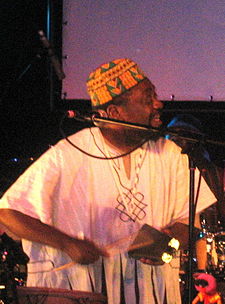There are many styles of traditional and modern music of Ghana, due to Ghana's worldwide geographic position on the African continent.

Kumasi, also spelled as Comassie or Coomassie, is a city and the capital of the Kumasi Metropolitan district and the Ashanti Region of Ghana. It is the second largest city in the country, with a population of 443,981 as of the 2021 census. Kumasi is located in a rain forest region near Lake Bosomtwe and is located about 200 kilometres (120 mi) from Accra. Major ethnic groups who lived in Kumasi are the Asante, Mole-Dagbon and Ewe. The current mayor of the metropolitan is Samuel Pyne.

Osibisa is a British-Ghanaian-Caribbean Afro-rock band founded in London in the late 1960s by four expatriate West African and three London based Caribbean musicians.

Soul to Soul is a 1971 documentary film about the Independence Day concert held in Accra, Ghana, on 6 March 1971. It features an array of mostly American R&B, soul, rock, and jazz musicians.
Agogo is a town in the Asante Akim North Municipal District of the Ashanti Region of Ghana. Agogo is approximately 80 kilometers (50 mi) east of Kumasi, the capital of the Ashanti Region, and had a population of 28,271 in the 2000 census. Computer projections estimate that the 2007 population was 32,859.

Otumfuo Opoku Ware II was the 15th Asantehene. He succeeded his uncle Osei Tutu Agyeman Prempeh II on 27 July 1970. He ruled for 29 years until his death in February 1999. He was succeeded by Otumfuo Nana Osei Tutu II.
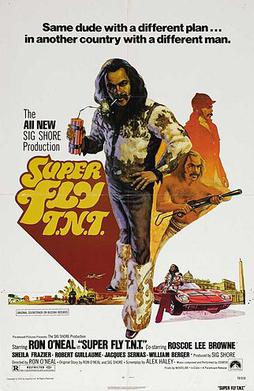
Super Fly T.N.T. is a 1973 American blaxploitation crime drama film directed and starring Ron O'Neal. O'Neal reprises his role of Youngblood Priest from the 1972 film Super Fly. The film was both a critical and commercial failure according to some critics.

Beattie Casely-Hayford was a Ghanaian engineer. He was the first director of the Ghana Arts Council, a co-founder of the Ghana National Dance Ensemble, and a director of the Ghana Broadcasting Corporation (GBC).
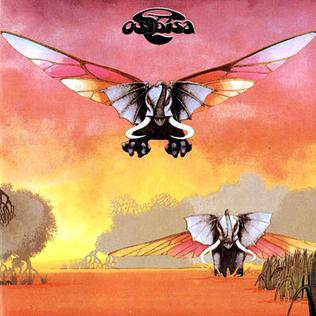
Osibisa is the self-titled debut album by British afro rock band Osibisa, released in 1971 by MCA. It was reissued in 2004 as a two-CD pack together with Woyaya by BGO Records.

Woyaya is the second album by Ghanaian Afro-rock band Osibisa released in 1971 by MCA. It was reissued in 2004 in a two-CD pack together with the self-titled album Osibisa by BGO Records.
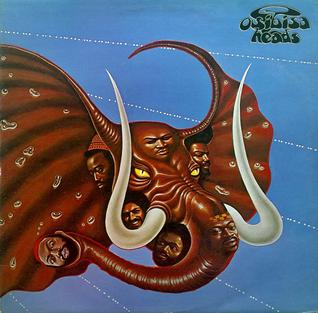
Heads is the third album by British Afro rock band Osibisa released in 1972.
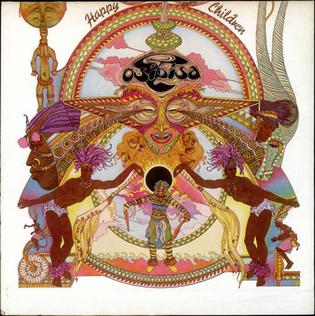
Happy Children is the fifth studio album by Ghanaian Afro rock band Osibisa released in 1973 by Warner Bros. Records WB 2732. Released on CD format 2000 by One Way Records 35164 and COE Records COE 111.
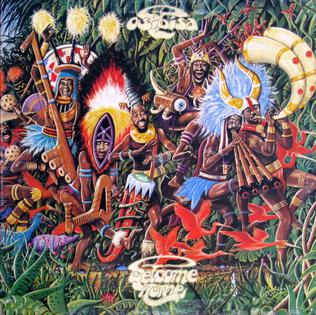
Welcome Home is the seventh studio album by British Afro rock band Osibisa released in 1975 by Island Records ILPS 9355. Issued in 1997 CD format by Red Steel Music Ltd. RMC 0208.

Ojah Awake is an album by Ghanaian Afro rock band Osibisa released in 1976 by Island Records ILPS 9411. Issued in 1995 CD format by AIM Records and then in 1997 remastered with bonus tracks on Red Steel Music (RMCCD9209)

Black Magic Night: Live at the Royal Festival Hall is a live double album by British Afro rock band Osibisa recorded at the Royal Festival Hall on 19 July 1977 with live versions of songs from their previous albums. Released in 1977 by Bronze Records and reissued as 2-CD set in 1993 on CD format by Castle Communications.
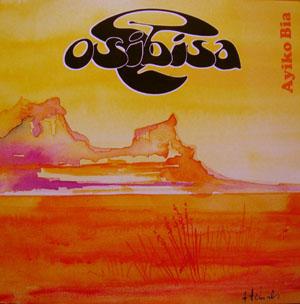
Ayiko Bia is a compilation album by British Afro rock band Osibisa released in 1992 by Soundwings Records (MC-102.1078-2) and distributed by Serenade S.A., Barcelona, Spain.

Africa We Go Go is a compilation album by British Afro rock band Osibisa released in 1992 by Soundwings Records (MC-102.1075-2) and distributed by Serenade S.A., Barcelona, Spain.
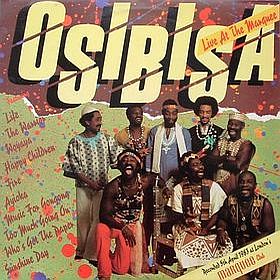
Live at the Marquee is an album by British Afro rock band Osibisa recorded live at The Marquee Club, London, April 5, 1983, and released in 1984 by Premier Records under catalog #1035. The concert has been issued as VHS in 1990 by Media 7 under the title Warrior and as DVD in 2003 by Umbrella Music under the title The Marquee 25th Anniversary presents Osibisa in Concert.
Ernest "Owoahene" Nana Acheampong, popularly known as Nana Acheampong, is a Ghanaian Highlife musician. He is also the other half of the famous Lumba brothers who popularized Burger-highlife in Ghana.
Kwame Gyasi (1929–2012) was a Ghanaian highlife musician. He originated the Sikyi highlife sub-genre which combined electric organ with the known highlife genres.
